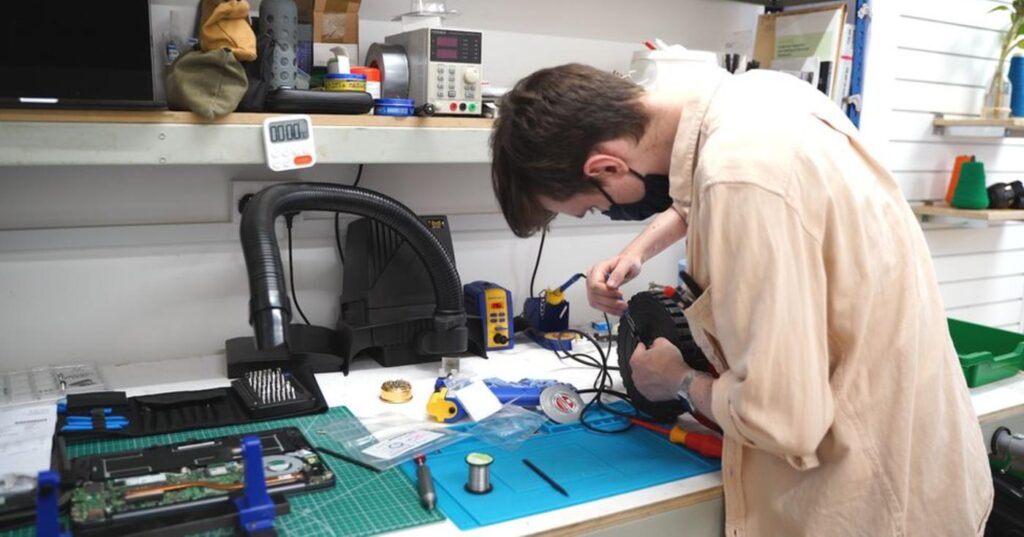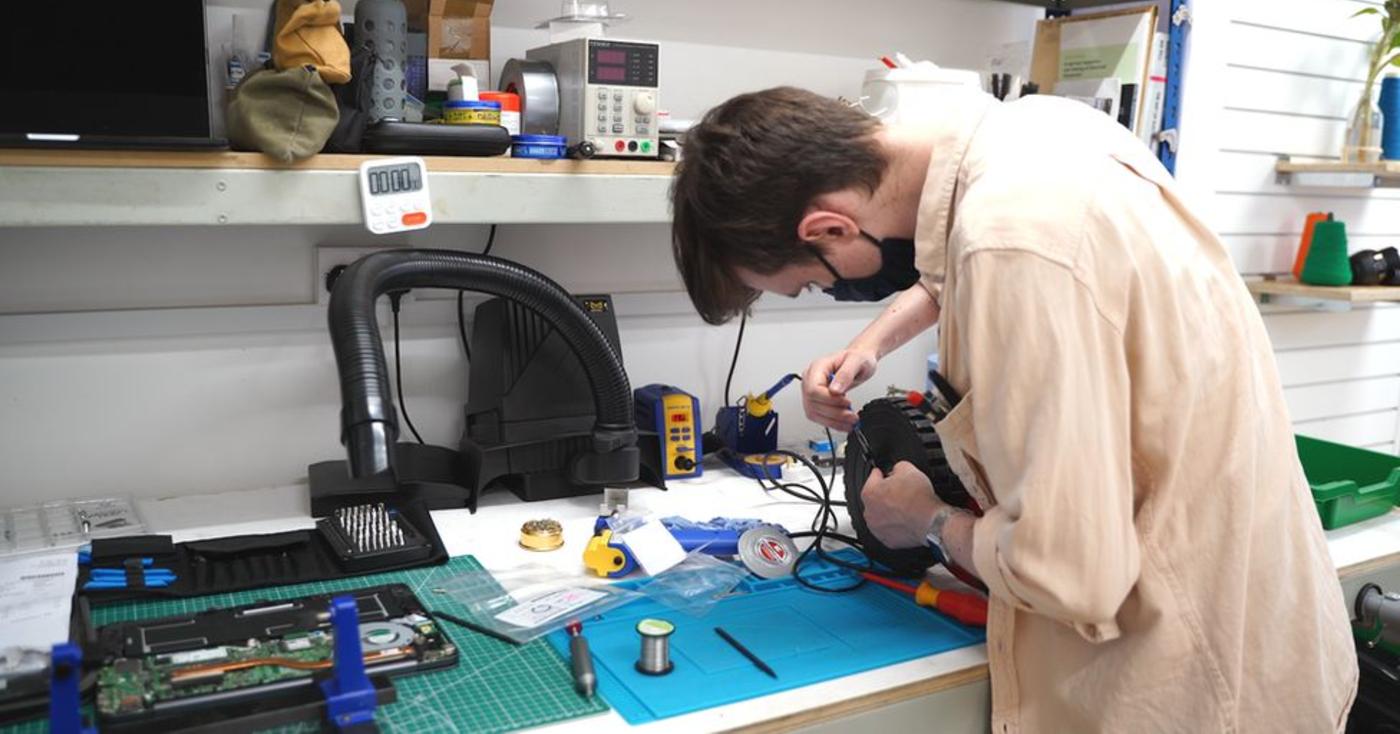
Despite the UK being the world’s second-largest generator of electronic waste per capita, a flourishing sub-culture of ‘Repair Cafes’ and other social groups is helping to balance out the island’s wasteful side.
A featured story from the Guardian reports that 580 such repair cafes are hosting regular events where volunteer fixers and tinkerers spend several hours sitting with people to troubleshoot, diagnose, and repair a litany of household items.
Author Sally Howard interviewed over half a dozen participants and organizers, and found the benefits to be legion: helping old people stay involved in the community, keeping undegradable waste out of the landfills, keeping carbon out of the atmosphere, disseminating knowledge on repairing electronics, keeping old skills like tailoring and cobbling alive, and even combating loneliness.
“Anyone can mend a toaster if they have the right tools; this knowledge is a gift we need to share as widely as possible,” said Stefania Fantini, a 59-year-old sound engineer who hosts Rosie the Restarter, a social group for women and non-binaries who want to learn how to repair household items.
Rosie the Restarter works under the organizational umbrella of the Restart Project, a non-profit coordinating and advocacy group that finds places and volunteers to host repair cafes, works to pass legislation in Parliament under the Right to Repair Europe banner, and produces educational literature about the burden of e-waste in our societies.
Electronic waste, being modular in nature, is a growing burden on the landfill system worldwide. Millions of tons of broken electronics are thrown out every year for four chief reasons.
Many people don’t know how to fix mechanical or electronic components or don’t have the tools to do so. The urge to toss something is greater than ever as companies have been able to make most consumer electronics delightfully inexpensive, allowing low and middle-income countries to afford them as well; in other words, replacing things isn’t all that much more expensive than repairing them.
As regards repairs, the third reason for the growth in e-waste is that many small item repair shops—the cobbler for example—are disappearing from streets across Europe and North America, and the fourth is that many companies deliberately make it difficult to repair their products—being particularly true of big-ticket items like laptops and smartphones.
Government action to address this last problem is progressing, but slowly. In the meanwhile, repair cafes, libraries of things, and other such establishments are fighting back against the loss of these small shops, the knowledge of repairing things, and the growing e-waste burden.
MORE STORIES ON THIS BEAT: Company Embodies ‘Right to Repair’ By Redesigning Auto Parts That Constantly Fail—And Selling Them Cheaper
“We conducted a study at a recycling center, and found that half of electricals being thrown away could have been reused, many needing only minor repairs,” said Shelini Kotecha from the Restart Project.
“Restart Parties are about enabling communities to learn how to fix their things for free, keeping items in circulation for longer and lowering our negative impact on the planet. They have a fun and collaborative spirit where everyone is welcome to learn new skills and meet new people”
The Restart Project is one entity playing a big role—especially in London where they have an objective to put a repair cafe in every neighborhood in every borough. It took them 6 months to find a partner and location that could be accessible to the people of Islington, London.
Spreading the word that the Islington Climate Centre was going to be the site of the new repair cafe, 20 interested volunteers visited to see what the event was about—Restart Project needed people to collect data and be part of the organizing team.
Then opening day came, and 30 Islingtonians brought in items in need of repair.
“A printer!” one of the organizers yelled after a local brought in a broken one. “Who wants to fix a printer?”
ALSO READ: Britain’s Royal Mint is Salvaging Gold from E-Waste – Recycling Precious Metals for Green Investors
Soon, the visitor was sitting with a volunteer doing a diagnosis—a new print head was needed.
48% of everything that was brought in was repaired the same day, which Restart Project said saved 391 kilograms of carbon emissions.
Others are more established, for example The Repairium in Bristol. Open every Sunday from Lunchtime until half past four, the repair cafe at The Repairium will soon open a second-hand electronics shop of all the goods donated.
SHARE This Awesome Social Movement With Your Friends…




















